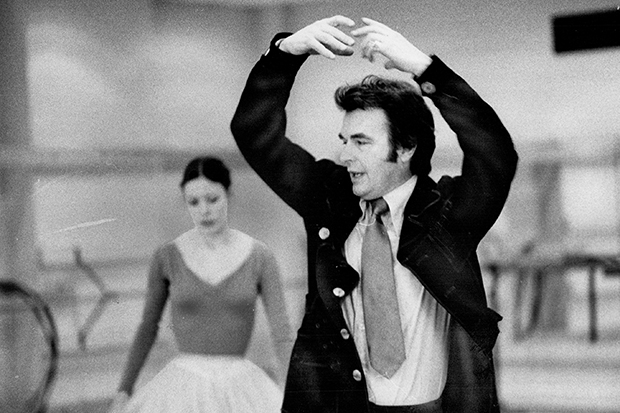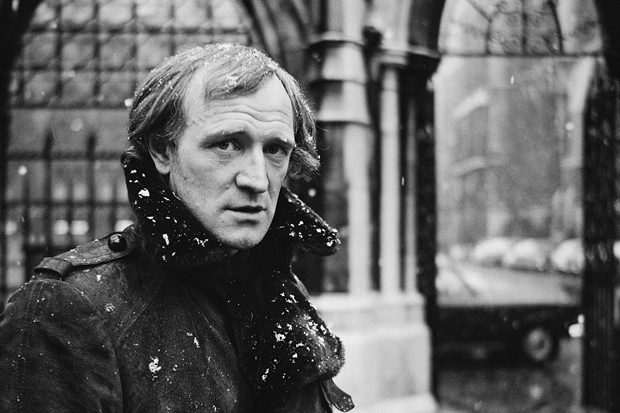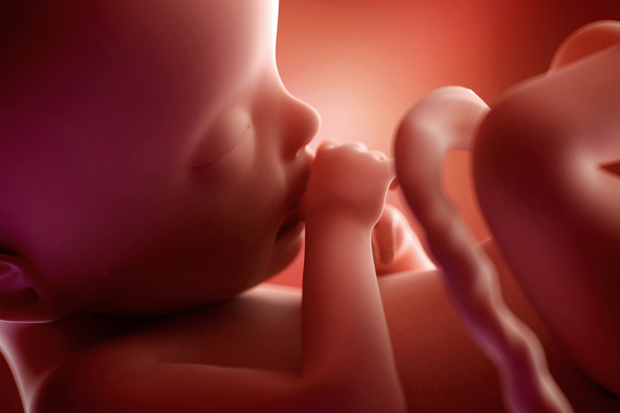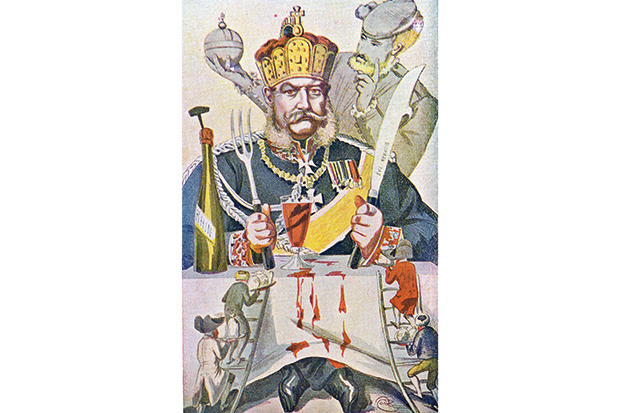In the American way, the child psychologist Alison Gopnik’s new book has an attractive sound-bitey title dragging a flat-footed subtitle in its wake: ‘What the New Science of Child Development Tells Us about the Relationship Between Parents and Children’. And what this new(ish) science tells us is that we parents — or at least, our American counterparts — are doing it all wrong.
Gopnik’s ‘carpenter’ is the parent who has a preconceived idea of how the child should turn out. A door is made according to a set of rules; if they are followed, it will be fit for purpose. The carpenter parent will raise the child ‘by the book’, ignoring individuality and denying opportunity for experimentation. Exam grades and structured after-school activities are important to this parent, who sees him/herself as a teacher as much as a caregiver.
The ‘gardener’, by contrast, nurtures their child like a plant in a rich, varied environment, allowing for personal growth. Some children, like dandelions, are tough and will thrive almost anywhere. Others, like orchids, need rarefied conditions. But every child requires ‘a protected early period’ when ‘its needs are met in a reliable, stable and unconditional way’, with ‘space for mess, variability, and exploration’.
I strongly agree. So why do I find this book unsatisfactory? There’s something specious about the way Gopnik sets out her argument. She begins by asking ‘Why be a parent?’, a question which I don’t believe normal human beings ever ask themselves any more than they ask ‘Why eat?’
She then tells us that if you are a middle-class American, ‘You are a parent so that you can do something called “parenting”. ’ Really? Does anyone choose to have a baby so that they can sign up for 18 expensive, boring years of after-school clubs? Gopnik has it in for ‘parenting’, which she calls a ‘goal-directed verb’, turning the raising of children into a competitive career. She complains that ‘parenting’ is a new word, ‘a terrible invention’; ‘The Merriam-Webster dictionary says its first use was in 1958.’
She then equates the rise of ‘parenting’ with a host of later-20th century changes; the disappearance of the extended family, of neighbourhoods where children could freely play outside, the rise of a work-obsessed culture. But Merriam-Webster doesn’t define ‘parenting’ in these loaded terms, and nor does any other dictionary. ‘Parenting’ just means giving the kind of care characteristic of parents. Gopnik has chosen to freight the word with negative meaning, says ‘parent’ should be a noun not a verb, but doesn’t consider the (interestingly contrasting) implications of ‘mothering’ and ‘fathering’, and cheerfully and proudly announces, ‘I grandmother.’
There’s more to her thesis than semantic quibbles, of course. She’s interesting about the reasons for ‘our exceptionally long and helpless human childhood’, using evidence from her laboratory experiments to examine the way children learn from adults, concluding that they learn more when they’re allowed to find answers for themselves, from a starting point provided by an adult, rather than being didactically instructed. She’s evangelical about the importance of play — rough-and-tumble and make-believe — in both learning and social bonding.
She’s both amusing and common-sensical about the hysteria over books versus screens, describing her own love of reading as an anti-social addiction to a ‘device’ just as powerful as a computer. We’re designed to ‘invent new technologies [and] transmit them across generations’. This rewires and reshapes our brains. It’s during childhood that such changes take strongest effect, and children shouldn’t be ‘protected from technological and cultural change — instead, childhood is the very crucible of such change’.
Gopnik is especially good on love. Raising children may be ‘a pretty awful kind of work, but it’s a pretty great kind of love’. Building love is a biological process — ‘holding and caring for babies increases our oxytocin levels’. She is a passionate grandmother, gleeful that she can be that very modern phenomenon, a working grandmother. She watches her grandson, Augie, very much a ‘gardened’ infant, whose middle age she won’t live to see, and muses on the paradox that ‘if I’ve been a good parent, I’ll have no control at all over my child’s adult life’; ‘Love’s purpose is not to shape our beloved’s destiny, but to help them shape their own.’
The Gardener and the Carpenter is warm, humane and perceptive, but it’s floppy. For a scientist, Gopnik has an odd habit of leaving assertions unexamined: ‘Many birds live at the South Pole’; ‘On a farm, fathers and mothers… both work and care for children at the same time’; ‘Many young adults… are enormously smart and knowledgeable, but directionless. ‘Most irksome are her sweeping generalisations about contemporary America, where ‘rich children live in a world of schooling and control, and poor children live in a world of chaos and neglect’. She makes a direct connection between the billions of dollars spent on ‘ “parenting” advice and equipment’ with the fact that the USA has ‘the highest rates of infant mortality and child poverty in the developed world’ — a link for which I can find no justification.
Gopnik attacks the thousands of ‘How To’ books on childcare, but she’s produced one herself. I’d guess that few of her readers would disagree with her basic premise. We’d all think gardeners were better than carpenters. An interesting question is why so many of us fail to act on our beliefs, falling into the habits of helicoptering and hothousing which Gopnik rightly and eloquently condemns.
The post The don’ts of ‘parenting’ appeared first on The Spectator.
Got something to add? Join the discussion and comment below.
Get 10 issues for just $10
Subscribe to The Spectator Australia today for the next 10 magazine issues, plus full online access, for just $10.
You might disagree with half of it, but you’ll enjoy reading all of it. Try your first month for free, then just $2 a week for the remainder of your first year.














Comments
Don't miss out
Join the conversation with other Spectator Australia readers. Subscribe to leave a comment.
SUBSCRIBEAlready a subscriber? Log in